Section outline
-
Welcome to You're Included, a series of interviews with Trinitarian theologians, now hosted on the website of Grace Communion Seminary. Most programs are 25-28 minutes long, available in audio, video, and edited transcripts. They are alphabetized by the interviewees' last names, and then listed in chronological order.
The most recent interviews are with Kerry Magruder, Thomas Noble, and Jenny Richards.
-
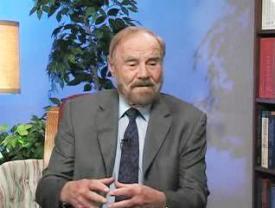
Dr. Anderson studied under Thomas F. Torrance at Edinburgh University in Scotland. He was a pastor, a professor of theology and ministry at Fuller Theological Seminary, and author of numerous books. He died in 2009.
-
In the first interview, Dr. Anderson points out the importance of having our theological viewpoint based on God's revelation of himself in Jesus Christ.
-
In this 49-minute program, Dr. Anderson talks about relating our lives to God’s reality, what God has become in becoming human, adoption, the parable of the prodigal, our necessary connection with Christ, and the emergent church.
-
-
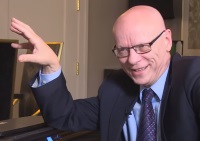 Jeremy Begbie, Professor of Theology at
Duke Divinity School, received a PhD in 1987 from the University of Aberdeen. He is interviewed here by GCS President Gary W. Deddo.
Jeremy Begbie, Professor of Theology at
Duke Divinity School, received a PhD in 1987 from the University of Aberdeen. He is interviewed here by GCS President Gary W. Deddo. -
In this 23-minute interview, Dr. Begbie discusses the beginnings of his passion for music and theology, and explores various historical approaches to music.
-
In this 8-minute interview, Dr. Begbie shares his thoughts on the unique powers of music and how they enrich our understanding of theology.
-
-
 Douglas A. Campbell is Professor of New
Testament at Duke Divinity School in Durham, North Carolina. He received his PhD
in 1989 from the University of Toronto.
Douglas A. Campbell is Professor of New
Testament at Duke Divinity School in Durham, North Carolina. He received his PhD
in 1989 from the University of Toronto.-
This interview gets to the heart and core of Paul's gospel. It includes our Reality with a capital "R" plus our participation with Christ and with each other in communion with God. 28 minutes.
-
In the second interview, Dr. Campbell encourages us to look at the gospel of grace in a new way. He speaks about how the gospel addresses and informs our understanding of sin and ethics in a way that challenges the model of a conditional or contractual grace. 27 minutes.
-
The third interview looks at examples of how Paul brought the gospel and purpose to the mission field. 30 minutes.
-
The fourth interview focuses on the book of Romans, centering on the core teachings of Romans chapters 5 through 8. 25 minutes.
-
-
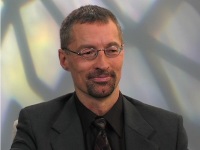
Elmer Colyer is professor of systematic theology at the University of Dubuque Theological Seminary, and pastor of a Methodist congregation. Dr. Colyer received his Ph.D. from Boston College/Andover Newton in 1992.
-
Dr. Colyer talks about the weaknesses of the concordance method of theology, that the Bible is not an end in itself, and Trinitarian theology. 35 minutes.
-
Dr. Colyer talks about the theology of Thomas Torrance, the vicarious humanity of Christ, and “the logic of grace.”
-
Dr. Colyer discusses predestination and Trinitarian theology. Some people assume that God is the best of our own ideals, others accept him the way he has revealed himself in Christ. 27:58
-
Dr. Colyer talks with Mike Feazell about the practical theology of Thomas F. Torrance. 24:51
-
Dr. Colyer discusses how hell and God’s wrath are related to God’s love. 30:46
-
Dr. Colyer examines the relationship between judgment and grace.
-
Dr. Colyer discusses repentance with us and why we don’t repent well on our own. 28:47
-
Dr. Colyer explains why church renewal programs don’t work and how gospel-centered congregations need to take the lead. 31:06
-
Dr. Colyer explores the Bible and how the church has wrestled with how theology has shaped our interpretations. 30:56
-
-
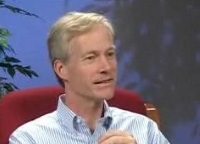 Gerrit Scott Dawson is senior pastor of First Presbyterian Church of
Baton Rouge, Louisiana. He received his D.Min. degree in 2002 from Reformed
Theological Seminary.
Gerrit Scott Dawson is senior pastor of First Presbyterian Church of
Baton Rouge, Louisiana. He received his D.Min. degree in 2002 from Reformed
Theological Seminary.-
Mike Feazell and Dr. Dawson discuss the importance of Jesus being human even after his ascension. 28:13
-
In this interview with J. Michael Feazell, Dr. Dawson discusses the challenges facing the church today, and the Christian’s role in evangelism.
-
Dr. Dawson discusses the significance of the fact that Jesus Christ is still human, that the incarnation continues into eternity. 29:48
-
God knows us utterly, loves us passionately and transforms us continually. Before we turn towards him, he has turned towards us.
-
-
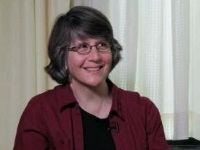 Cathy Deddo received a master’s degree in theology from Fuller Theological
Seminary. She is the author of Bible studies and reflections at www.trinitystudycenter.com. In this interview, she discusses the question, "What role does theology play in our everyday relationships?" 26:13
Cathy Deddo received a master’s degree in theology from Fuller Theological
Seminary. She is the author of Bible studies and reflections at www.trinitystudycenter.com. In this interview, she discusses the question, "What role does theology play in our everyday relationships?" 26:13 -
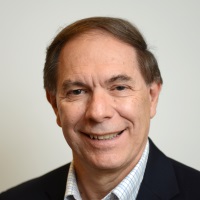 Gary W. Deddo was, at the time of the interviews, a senior editor at InterVarsity Press. He is now Professor of Theology at Grace Communion Seminary. Dr. Deddo earned his PhD at the University of Aberdeen in
Aberdeen, Scotland, under Professor James Torrance.
Gary W. Deddo was, at the time of the interviews, a senior editor at InterVarsity Press. He is now Professor of Theology at Grace Communion Seminary. Dr. Deddo earned his PhD at the University of Aberdeen in
Aberdeen, Scotland, under Professor James Torrance.-
Who Is God? Why does God tell people what to do? 26:47
-
In this interview, Dr. Deddo discusses God’s plan to share his love throughout the universe. 28:19
-
In this interview, Dr. Deddo discusses what happens to people who don’t seem to have a chance to hear the gospel. 31:50
-
Dr. Deddo says that theologian Karl Barth pointed to the gospel, and to God as he revealed himself in Scripture. 33:10
-
Dr. Deddo explains why Jesus said it was difficult for people to be saved. 28:47
-
Dr. Deddo explains “Who is God?” and the real meaning of repentance. 27:45
-
Dr. Deddo talks about what it means to say that we “participate” with God. 25:58
-
Dr. Deddo talks about what Jesus is doing in our sanctification; he also discusses evangelism. 30:45
-
-
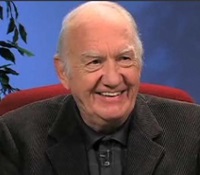 Gordon Fee was a professor of New Testament at Regent College in Vancouver, British Columbia. He received his PhD in 1966 from the University of Southern California and died in 2022.
Gordon Fee was a professor of New Testament at Regent College in Vancouver, British Columbia. He received his PhD in 1966 from the University of Southern California and died in 2022.We have three interviews with Dr. Fee:
-
Dr. Fee talks with Mike Feazell about the book of Revelation and basic principles of understanding Scripture. 30:55.
-
Dr. Fee discusses common mistakes in the way that people read the Bible. 27:22
-
Dr. Fee talks about the renewed image of the Father through his likeness shared in Christ the Son. 26:20
-
-
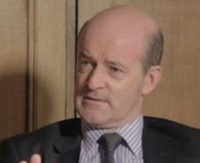 David A. S. Fergusson is Professor of Divinity and
Principal at New College in the University of Edinburgh. He talks with Gary Deddo about his Gifford Lecture series and the resulting publication Faith and Its Critics: A Conversation. They discuss his thoughts on the critical views of religion held by new atheists. 26:40.
David A. S. Fergusson is Professor of Divinity and
Principal at New College in the University of Edinburgh. He talks with Gary Deddo about his Gifford Lecture series and the resulting publication Faith and Its Critics: A Conversation. They discuss his thoughts on the critical views of religion held by new atheists. 26:40. -
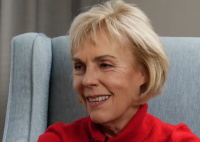 Dr. Jeannine Graham was the Associate Professor of Religious Studies, George Fox
University, in Newburg, OR.
She received her Ph.D. at the University of Aberdeen, under the direction of
Professor James B. Torrance.
Dr. Jeannine Graham was the Associate Professor of Religious Studies, George Fox
University, in Newburg, OR.
She received her Ph.D. at the University of Aberdeen, under the direction of
Professor James B. Torrance.-
Dr. Graham shares with us her profound appreciation for good theology and some insights from her teaching and writing on the vital connection between the incarnation and saving work of Jesus Christ through his cross. Length: 26 minutes.
-
Dr. Graham helps us understand and appreciate the depth and meaning of Jesus’s exclusive connection to human nature as the one for the many, our union with Christ by the Holy Spirit and his continuing ministry in our place and on our behalf. Length: 24 minutes.
-
-
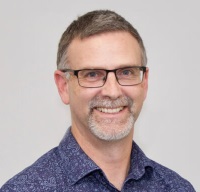 Myk Habets is head of Carey Graduate School in New Zealand. He
received his PhD from the University of Otago in 2006.
Myk Habets is head of Carey Graduate School in New Zealand. He
received his PhD from the University of Otago in 2006.The interviews with Dr. Habets were recorded, but the technical quality was not sufficient for either video or audio, but we were able to transcribe the interviews.
-
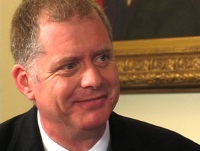 Trevor Hart is Professor of Divinity at the University of St. Andrews
in Edinburgh, Scotland. He received his PhD from the University of Aberdeen in 1989.
Trevor Hart is Professor of Divinity at the University of St. Andrews
in Edinburgh, Scotland. He received his PhD from the University of Aberdeen in 1989.-
There is a place for the various arts and for imagination in the church. 29:50.
-
There is positive encouragement and assurance in knowing that God's eternal purpose is to be God in Jesus Christ for us — that God the Father is fully reflected in the face of Jesus. 28:23
-
God's heart beats with love for everyone he’s made, so he calls them into fellowship with himself. This is good news, not just for Christians but for everyone. 25:23
-
-
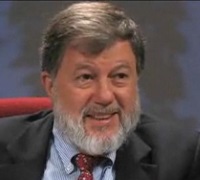 George Hunsinger, professor of systematic theology at Princeton
Theological Seminary, received his PhD in 1988 from Yale University.
George Hunsinger, professor of systematic theology at Princeton
Theological Seminary, received his PhD in 1988 from Yale University.-
The election that really counts is that we are elected or chosen in Jesus Christ, the Chosen One. 32:35
-
Colossians 3:3 has been called a decisive verse for the New Testament. Our lives in Christ are real, and yet can’t always be seen. 26:42
-
It’s important to keep our focus on Christ and the relational nature of the eucharist; it can serve to break down denominational barriers. 33:21
-
Dr. Hunsinger talks about his work examining the theology of the Eucharist across different Christian heritages. 43:31
-
-
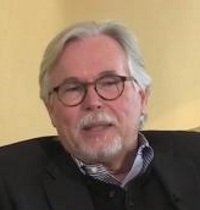 Michael
Jinkins is president
of Louisville Presbyterian Theological Seminary. He received his PhD from the
University of Aberdeen in 1990.
Michael
Jinkins is president
of Louisville Presbyterian Theological Seminary. He received his PhD from the
University of Aberdeen in 1990.Michael Jinkins reflects on his time in seminary and discusses his book Invitation to Theology. 21:21
-
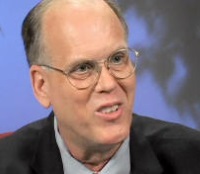 Christian
Kettler
is professor of religion at Friends University in Kansas. He received his
PhD in 1986 from Fuller Theological Seminary, working with the late Dr. Ray
Anderson.
Christian
Kettler
is professor of religion at Friends University in Kansas. He received his
PhD in 1986 from Fuller Theological Seminary, working with the late Dr. Ray
Anderson.-
Dr. Kettler discusses how theology affects the average person, the importance of Jesus’ humanity, and how we share in the faith of Christ. 25:57
-
People like to talk about the potential of salvation, but the Bible refers to the actuality of salvation.
-
The Word of God is threefold: Jesus Christ is the living Word, the Bible is the written word, and preaching is the spoken word. 30:44
-
Dr. Kettler discusses the ministry and theology of the late Ray Anderson. 24:35
-
-
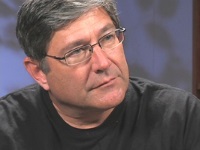 C. Baxter Kruger
earned his PhD in 1989 from Kings College, University of Aberdeen, studying
under James B. Torrance. He is president of Perichoresis, a non-profit
ministry.
C. Baxter Kruger
earned his PhD in 1989 from Kings College, University of Aberdeen, studying
under James B. Torrance. He is president of Perichoresis, a non-profit
ministry. See near the end of this page for some interviews with William Paul Young and C. Baxter Kruger together.
-
Jesus is the center of all things, and God planned for our adoption even before the foundation of the world. 30:42
-
The starting place of the gospel is that we are already included, and it is our choice whether to live in that relationship. 27:34
-
William Paul Young’s book The Shack illustrates the triune God’s love for all humanity. 26:45
-
The Western world thinks that Jesus came to save us from the harsh God. But the Father is actually just like Jesus. 29:26
-
Dr. Kruger discusses the goodness of God and our moments of darkness. 32:57
-
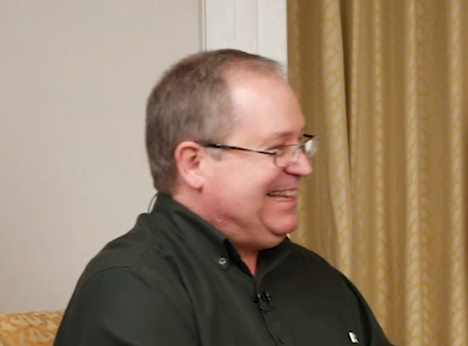
Kerry Magruder is Curator of the History of Science Collections, Associate Professor of Bibliography, and Associate Professor of the History of Science at the University of Oklahoma.
-
In this episode of You’re Included, Dr. Kerry Magruder discusses the intersection of faith and science. 24:09
-
In this episode of You’re Included, Dr. Kerry Magruder discusses the intersection of faith and science. 23:31
-
-
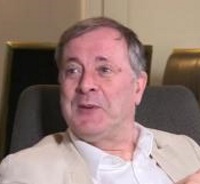
Alister McGrath, Professor of Science and Religion at Oxford University, earned a doctorate in molecular biophysics in 1977, a doctorate in divinity in 2001 and was awarded a third doctorate in 2013. In this interview, Dr. McGrath discusses his journey into the study of science and theology, his discovery of C. S. Lewis, and other issues. 31:04
-
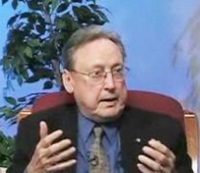 John E. McKenna was adjunct Professor of Biblical Studies at Azusa
Pacific Seminary and Grace Communion Seminary. He studied under Thomas F. Torrance at the University of Edinburgh and received his PhD from Fuller Theological Seminary. He died in 2018.
John E. McKenna was adjunct Professor of Biblical Studies at Azusa
Pacific Seminary and Grace Communion Seminary. He studied under Thomas F. Torrance at the University of Edinburgh and received his PhD from Fuller Theological Seminary. He died in 2018.-
Our view of non-Christians makes a difference in our relationship with them. 29:18
-
The freedom we have is because God loves us and is not angry with us. 27:43
-
The freedom we have is in God, and God will not be who he is without us. 36:40
-
Dr. McKenna explains Exodus 34:6 and the continuity of grace in Old and New Testaments. 28:43
-
Dr. McKenna discusses the vicarious humanity of Jesus Christ. 27:35
-
-
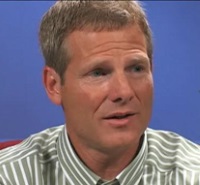 Jeff McSwain is the founder of
Reality Ministries of Durham, North Carolina. Jeff earned his doctorate in 2015
at the University of St. Andrews.
Jeff McSwain is the founder of
Reality Ministries of Durham, North Carolina. Jeff earned his doctorate in 2015
at the University of St. Andrews. -
Jeff McSwain discusses how to help young people experience the loving embrace of Jesus Christ. 29:16
-
Some people think that God the Father is angry, and Christ is appeasing his anger. But the truth is quite different. 29:31
-
Jeff discusses the difference between Calvinism and Arminianism, and the Reformed view of Karl Barth. 34:15
-
If we are new creations, why do we still have old habits? Jeff McSwain talks about sanctification. 30:28
-
We all bring our own viewpoint to Scripture, so it’s important for us to read the Bible through a Christ-centered lens. 32:56
-
Jeff McSwain describes the goal of Reality Ministries – to help adolescents understand that they belong. 26:52
-
-
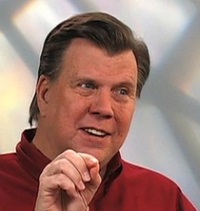 Steve
McVey (D.Min.,
Luther Rice Seminary), is founder of GraceWalk Ministries.
Steve
McVey (D.Min.,
Luther Rice Seminary), is founder of GraceWalk Ministries.-
Dr. McVey explains that Christians live by trusting in the grace of Christ. 30:59
-
In this interview, Dr. McVey shares the theological insights he has gained over the years. 29:04
-
It’s important to understand the cross, and how it affects our view of the whole being of God, Father, Son and Spirit. 28:33
-
Dr. McVey discusses the frequently misunderstood topic of God’s wrath, and its relationship with God’s love. 28:33
-
Steve McVey discusses the themes found in his book, Grace Walk. 28:44
-
-
 Paul
Louis Metzger is Professor of Christian Theology and Theology of
Culture at King’s Multnomah University in Portland, Oregon. He received his PhD
in 1999 from King's College in London.
Paul
Louis Metzger is Professor of Christian Theology and Theology of
Culture at King’s Multnomah University in Portland, Oregon. He received his PhD
in 1999 from King's College in London.-
Relationships are important in the way we share the gospel. 26:30
-
Dr. Metzger talks about the need for the church to include all peoples. 27:43
-
Christians will be led by the Holy Spirit to care for others, reflecting the communion within the Triune God. 31:08
-
Dr. Metzger talks about participation in the triune life of God. 26:02
-
-
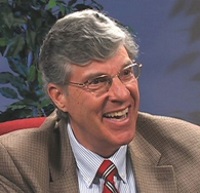 Paul
Molnar is
professor of systematic theology at St. John’s University in New York. He
received his PhD from Fordham University in 1980.
Paul
Molnar is
professor of systematic theology at St. John’s University in New York. He
received his PhD from Fordham University in 1980.-
Dr. Molnar discusses the importance of keeping Christ at the center of our thoughts about God. 32:46
-
In salvation, humans are being drawn into Christ’s relationship with God the Father. 25:10
-
God’s will gets complicated when it intersects with our choices. 23:05
-
When we try to separate the gift from the giver, grace separated from God, we make salvation about ourselves. 28:05
-
-
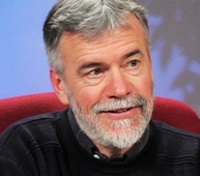 Roger J. Newell was Associate Professor of Religious Studies at George Fox University. Dr.
Newell completed his doctoral studies under Professor James Torrance in
Aberdeen, Scotland.
Roger J. Newell was Associate Professor of Religious Studies at George Fox University. Dr.
Newell completed his doctoral studies under Professor James Torrance in
Aberdeen, Scotland.-
Gabriel announced to Mary that she would give birth to the Son of God. Her response to is exemplary. 27:45
-
Dr. Newell discusses the theological insights in C.S. Lewis’ fiction. 29:45
-
Dr. Newell discusses the relationship between theology and German history in the 20th century. 25:46
-
-
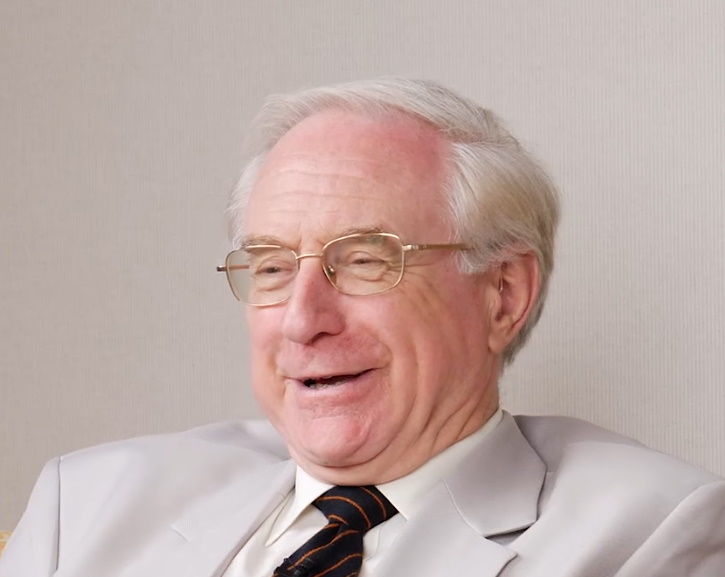 Dr. Thomas A. Noble is Professor of Theology for Nazarene Theological
Seminary, Kansas City, MO, and Visiting Lecturer and Ph.D. Research
Supervisor at the Nazarene Theological College, Manchester, UK. He is
the author of the book, Holy Trinity: Holy People: The Theology of
Christian Perfecting. He studied under T.F. Torrance and earned his PhD in theology at the University of Edinburgh in 1989.
Dr. Thomas A. Noble is Professor of Theology for Nazarene Theological
Seminary, Kansas City, MO, and Visiting Lecturer and Ph.D. Research
Supervisor at the Nazarene Theological College, Manchester, UK. He is
the author of the book, Holy Trinity: Holy People: The Theology of
Christian Perfecting. He studied under T.F. Torrance and earned his PhD in theology at the University of Edinburgh in 1989.-
Dr. Noble helps us understand the connection between holiness and love. He discusses the importance of defining holiness within the context of the Trinitarian relationship. 22:08
-
Dr. Noble shares his experience collaborating across evangelical traditions. He describes the value of a shared faith and mission in an ecumenical community, and how it made an impact on his understanding of God. 21:05
-
-
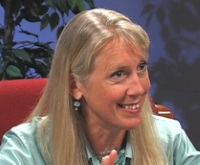 Cherith
Fee Nordling is Associate Professor at the Robert E. Webber Institute for Worship Studies at Regent College. She earned her PhD in 2003 from the University of St.
Andrews in Scotland.
Cherith
Fee Nordling is Associate Professor at the Robert E. Webber Institute for Worship Studies at Regent College. She earned her PhD in 2003 from the University of St.
Andrews in Scotland.-
Dr. Nordling discusses the humanity of Jesus Christ, and what it means to be human. 28:14
-
Dr. Nordling discusses the nature of the resurrected body and the significance of Jesus becoming fully human. 27:45
-
What Jesus’ humanity means for us: Jesus is truly human, and that shows us what it means for us to be truly human. 30:27
-
From the beginning God has wanted his people to bear his image. 28:34
-
-
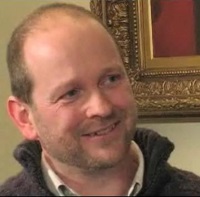 Robin
Parry is
an editor for Wipf and Stock Publishers. He received a PhD in 2001 from the
Cheltenham and Gloucester College of Higher Education in England.
Robin
Parry is
an editor for Wipf and Stock Publishers. He received a PhD in 2001 from the
Cheltenham and Gloucester College of Higher Education in England.-
Dr. Parry discusses the importance of having a trinitarian perspective in our worship.
-
Dr. Parry discusses the importance of "lament" and the role of Israel in salvation history. 25:31
-
-
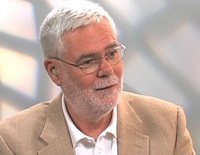 Andrew
Purves, Professor
of Reformed Theology at Pittsburgh Theological Seminary, received his PhD in
1978 from the University of Edinburgh, in Scotland.
Andrew
Purves, Professor
of Reformed Theology at Pittsburgh Theological Seminary, received his PhD in
1978 from the University of Edinburgh, in Scotland.-
Dr. Purves discusses the primary pastoral question: What is Jesus up to that I can bear witness to? 30:47
-
A pastor should connect the story of God with the context of individual people, so the pastor needs to be tightly connected to God and the people. 29:35
-
Dr. Purves recounts valuable learning experiences he has had in ministry and stories of people who have had an impact on his life. 25:20
-
Ministers are not messiahs — their role is to join the Messiah in the work he is already doing. 29:37
-
-
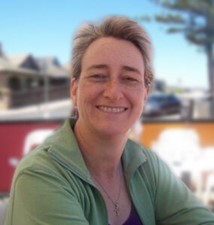 Jenny Richards is Lecturer in Law and Academic Advisor in
the College of Business, Government and Law in Flinders University, Australia. She is also studying for a PhD in theology. This interview was originally done for the podcast Gospel Reverb. Since the subject matter is similar to what has been covered in You're Included, we are including it in this list. There is no video.
Jenny Richards is Lecturer in Law and Academic Advisor in
the College of Business, Government and Law in Flinders University, Australia. She is also studying for a PhD in theology. This interview was originally done for the podcast Gospel Reverb. Since the subject matter is similar to what has been covered in You're Included, we are including it in this list. There is no video. -
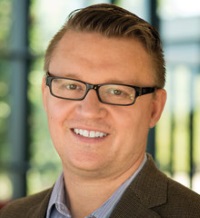 Andrew
Root, Chair of Youth and Family Ministry at Luther Seminary in St. Paul, Minnesota, received a Ph.D. from Princeton Theological Seminary in 2005.
Andrew
Root, Chair of Youth and Family Ministry at Luther Seminary in St. Paul, Minnesota, received a Ph.D. from Princeton Theological Seminary in 2005.-
The importance of building relationships in youth ministry. 30:27
-
Dr. Root explains the difference between influence and place-sharing in youth ministry. 29:44
-
Relational youth ministry arises out of place sharing rather than patterns of influence. 27:01
-
We do not need to be afraid of doubt. When we fear that “God is not here,” that is when God is likely to be found. 32:00
-
-
 Fred
Sanders is
professor of theology in the Torrey Honors Institute at Biola University, La
Mirada, CA. He received a PhD from the Graduate Theological Union (Berkeley,
CA) in 2001.
Fred
Sanders is
professor of theology in the Torrey Honors Institute at Biola University, La
Mirada, CA. He received a PhD from the Graduate Theological Union (Berkeley,
CA) in 2001.-
Dr. Sanders discusses his book The Deep Things of God: How the Trinity Changes Everything. 25:03
-
Dr. Sanders discusses the nature of our inclusion and prayer life within the Trinity. 25:14
-
-
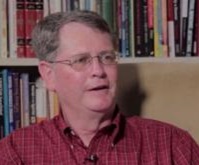 Stephen
Seamands is
professor of Christian doctrine at Asbury Theological Seminary in Wilmore,
Kentucky. He received his PhD from Drew University in 1983.
Stephen
Seamands is
professor of Christian doctrine at Asbury Theological Seminary in Wilmore,
Kentucky. He received his PhD from Drew University in 1983.-
What are the practical implications of doctrines? They inform us and give us a framework. 32:29
-
Dr. Seamands explores how we were created in the Trinitarian image of God. 23:53
-
Dr. Seamands explores how we allow Jesus to help us in the process of healing and truly forgiving and forgetting, even redeeming our hurt. 20:53
-
-
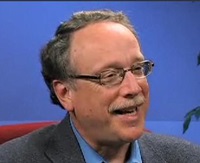 Daniel
Thimell was Associate
Professor of Theological-Historical Studies at Oral Roberts University. Dr.
Thimell earned his Ph.D. from the University of Aberdeen in 1993.
Daniel
Thimell was Associate
Professor of Theological-Historical Studies at Oral Roberts University. Dr.
Thimell earned his Ph.D. from the University of Aberdeen in 1993.-
In Scotland, John McLeod Campbell found that people had no joy in their Christianity, because they had not understood how effective the work of Christ was. 25:48
-
Jesus Christ won a completed salvation for each of us. 27:19
-
Christianity is not primarily about right behavior, but about relying on Christ’s completed work. 27:47
-
The Trinity is the foundation for the doctrine of God’s love and the knowledge of God. We are called to participate in his life. 28:08
-
-
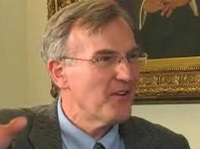 Alan
Torrance earned
his doctorate in theology at the University of Erlangen-Nurnberg in Germany. He
is professor of systematic theology at the University of St. Andrews in
Scotland.
Alan
Torrance earned
his doctorate in theology at the University of Erlangen-Nurnberg in Germany. He
is professor of systematic theology at the University of St. Andrews in
Scotland.-
Dr. Torrance discusses what the Incarnation means to us and how grace leads us to godly living. 29:33
-
The wrath of God and hell come about because of God’s love. Good science indicates God’s existence. 27:58
-
How should the work of Christ affect our lives and relationships? 24:29
-
-
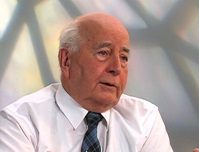 David
Torrance
studied in Basel, Switzerland, under Karl Barth and Oscar Cullmann. He served
in the Church of Scotland from 1955 until his retirement.
David
Torrance
studied in Basel, Switzerland, under Karl Barth and Oscar Cullmann. He served
in the Church of Scotland from 1955 until his retirement.-
God pours out his love, granting us grace by the finished work of Christ, and our thankful response to that. 31:03
-
To receive Christ means that we share in his death and his resurrection — death to our old life of sin. 27:14
-
Rev. Torrance recounts how God led him into ministry. 28:01
-
Rev. Torrance shares some of the lessons he has learned about parish ministry. 33:06
-
How should we approach our sin, personally and in the pulpit? 27:59
-
-
 Robert
T. Walker is
a nephew of the late Thomas F. Torrance. He edited Torrance’s lecture notes
into two books describing Torrance’s teachings about the person and work of
Jesus Christ.
Robert
T. Walker is
a nephew of the late Thomas F. Torrance. He edited Torrance’s lecture notes
into two books describing Torrance’s teachings about the person and work of
Jesus Christ.-
Robert Walker discusses who Christ is for us, and he has faith for us. 26:08
-
The Father was in Jesus Christ, as God become human, who took our humanity into God and gave us a new humanity. 27:22
-
Jesus’ resurrection frees us from death and sin, and it is the beginning of the reconstitution of everything in Christ. 26:55
-
-
 N.T.
Wright is Chair of New Testament and Early Christianity at the School of Divinity at the University of St. Andrews, Scotland. He received a PhD from Oxford in 1980.
N.T.
Wright is Chair of New Testament and Early Christianity at the School of Divinity at the University of St. Andrews, Scotland. He received a PhD from Oxford in 1980.In both interviews, Dr. Wright talks about themes in his book, How God Became King: The Forgotten Story of the Gospels.
-

William Paul Young is the author of the best-selling novel The Shack.
-
Paul Young explains that the nature of relationship is embedded in the Trinitarian character and nature of God. 27:11
-
The popular view of God is a Christianized Zeus, as opposed to the loving Father portrayed by the “prodigal’s father.” 29:13
-
Many people experience a “disconnect” in trying to trust the “angry” God who requires his Son’s death. 34:28
-
-
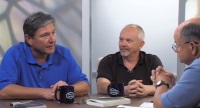 Author Paul Young and theologian Baxter Kruger discuss topics related to the best-selling book The Shack.
Author Paul Young and theologian Baxter Kruger discuss topics related to the best-selling book The Shack.-
Young and Kruger discuss The Shack, religion, and a new understanding of relationship with God. 27:59
-
Young and Kruger continue discussing religion and the hope for a new understanding of relationship with God. 34:28
-
Young and Kruger discuss Dr. Kruger’s book, The Shack Revisited, which examines the theology embedded in Young’s book. 30:26
-
Young and Kruger discuss the impact of the Trinity on evangelism, and our participation in the message of Jesus. 30:58
-
-
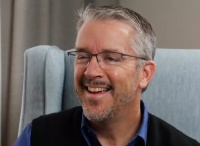 Geordie Ziegler received a PhD in theology from the
University of Aberdeen.
Geordie Ziegler received a PhD in theology from the
University of Aberdeen.In the first interview, Dr. Ziegler speaks about his book Trinitarian Grace and Participation: An Entry into the Theology of T.F. Torrance. He also discusses the profoundly personal and relational shape of God’s grace. Length: 21:47.
In the second interview, he discusses an approach to spiritual formation that does not start with ourselves, but places at the center God the Father’s relationship with the eternal Son. Length: 25:41.
-
Dr. Ziegler speaks about his book Trinitarian Grace and Participation: An Entry into the Theology of T.F. Torrance. He also discusses the profoundly personal and relational shape of God’s grace. 21:47.
-
Dr. Ziegler discusses an approach to spiritual formation that does not start with ourselves, but places at the center God the Father’s relationship with the eternal Son. 25:41.
-